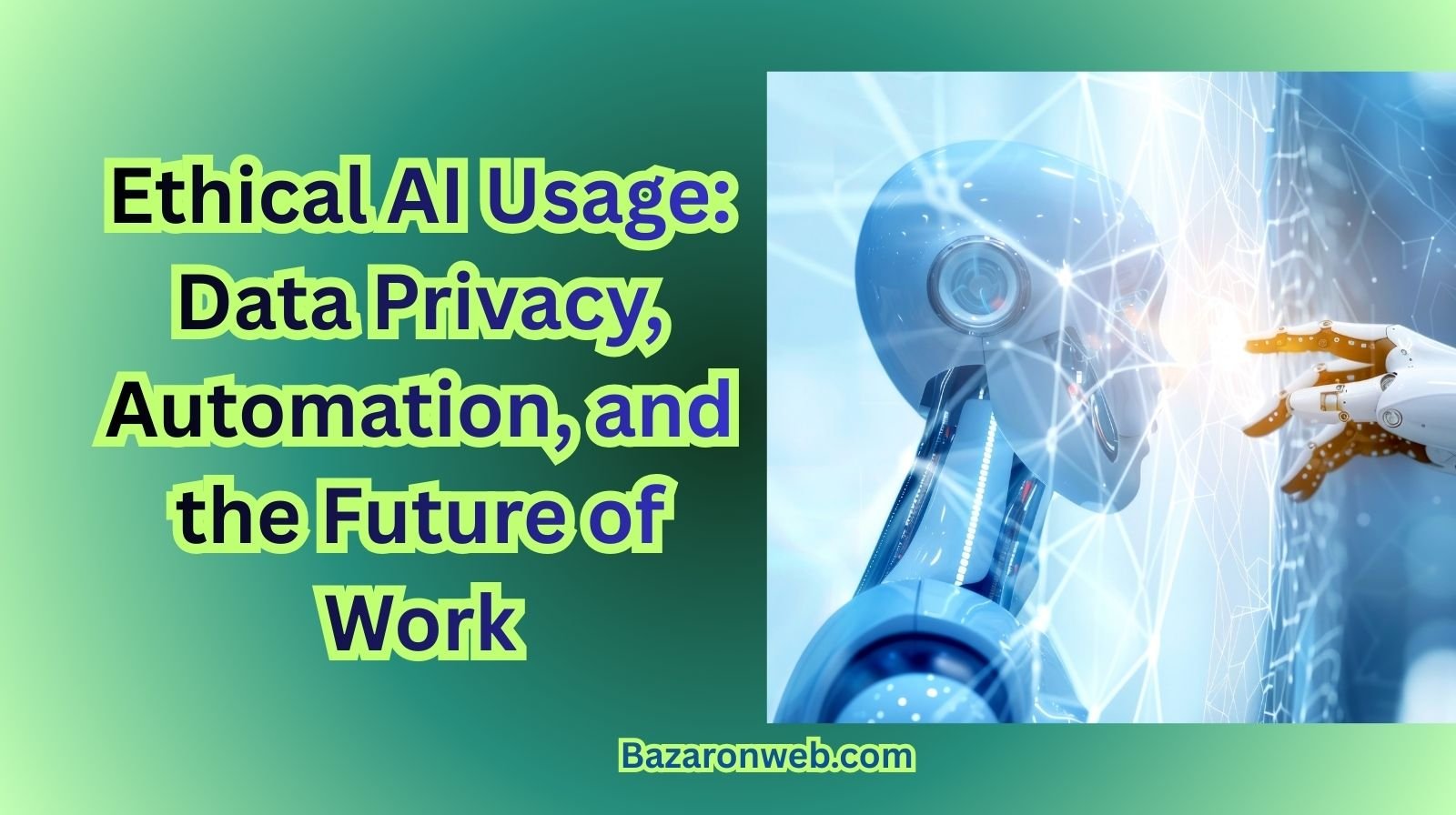Category
Popular Articles
- AI (17)
- Android (45)
- App Suggest (13)
- Apple (35)
- Apple TV (4)
- Bluetooth (3)
- Cars (2)
- ChatGpt (1)
- Chrome (2)
- Did you know? (1)
- E-Commerce News (1)
- Ecommerce Websites business (7)
- Electronics Shopping (5)
- Fashion Tips (3)
- Gaming (5)
- Google Gemini (3)
- Hair Care Tips (2)
- How to (13)
- iCloud (1)
- Infotainment System (1)
- Iphone (127)
- Job Posting (1)
- Lifestyle (3)
- Mac (22)
- Mobile Games (1)
- Netflix (1)
- Online Shopping Websites (2)
- Personal Finance Management (3)
- Product Reviews (3)
- Roku TV (4)
- Samsung (10)
- Shopping Tips (13)
- Spotify (1)
- Tech (144)
- VPN (2)
- Windows 11 (31)
- Zero Waste (3)
Discounted Products
-
 Leo Creation 144 TC Cotton Double Jaipuri Prints Flat Bedsheet(Pack of 1, Blue, Gree, Red, Grey, Light Grey)
Leo Creation 144 TC Cotton Double Jaipuri Prints Flat Bedsheet(Pack of 1, Blue, Gree, Red, Grey, Light Grey)
₹2,999.00Original price was: ₹2,999.00.₹329.00Current price is: ₹329.00. -
 Home Garage 210 TC Cotton King Floral Fitted (Elastic) Bedsheet(Pack of 1, Grey)
Home Garage 210 TC Cotton King Floral Fitted (Elastic) Bedsheet(Pack of 1, Grey)
₹999.00Original price was: ₹999.00.₹299.00Current price is: ₹299.00. -
 Goodrik 140 TC Cotton Double 3D Printed Flat Bedsheet(Pack of 1, Brown)
Goodrik 140 TC Cotton Double 3D Printed Flat Bedsheet(Pack of 1, Brown)
₹499.00Original price was: ₹499.00.₹229.00Current price is: ₹229.00. -
 GLOBALSHOP 350 TC Microfiber Double Floral Flat Bedsheet(Pack of 1, Multicolor)
GLOBALSHOP 350 TC Microfiber Double Floral Flat Bedsheet(Pack of 1, Multicolor)
₹1,250.00Original price was: ₹1,250.00.₹263.00Current price is: ₹263.00. -
 RisingStar 250 TC Microfiber King Printed Fitted (Elastic) Bedsheet(Pack of 1, FITTED-ROUND-CIRCLES-PREMIUM)
RisingStar 250 TC Microfiber King Printed Fitted (Elastic) Bedsheet(Pack of 1, FITTED-ROUND-CIRCLES-PREMIUM)
₹2,299.00Original price was: ₹2,299.00.₹299.00Current price is: ₹299.00. -
 Home Garage 210 TC Cotton King Floral Fitted (Elastic) Bedsheet(Pack of 1, Fitted Black Green)
Home Garage 210 TC Cotton King Floral Fitted (Elastic) Bedsheet(Pack of 1, Fitted Black Green)
₹1,299.00Original price was: ₹1,299.00.₹299.00Current price is: ₹299.00. -
 Home Garage 180 TC Cotton King 3D Printed Flat Bedsheet(Pack of 1, White)
Home Garage 180 TC Cotton King 3D Printed Flat Bedsheet(Pack of 1, White)
₹999.00Original price was: ₹999.00.₹229.00Current price is: ₹229.00. -
 Home Sizzler 153 cm (5 ft) Polyester Room Darkening Window Curtain (Pack Of 2)(Floral, Maroon)
Home Sizzler 153 cm (5 ft) Polyester Room Darkening Window Curtain (Pack Of 2)(Floral, Maroon)
₹799.00Original price was: ₹799.00.₹299.00Current price is: ₹299.00. -
 Panipat Textile Hub 152.4 cm (5 ft) Polyester Window Curtain (Pack Of 2)(Solid, Aqua)
Panipat Textile Hub 152.4 cm (5 ft) Polyester Window Curtain (Pack Of 2)(Solid, Aqua)
₹1,899.00Original price was: ₹1,899.00.₹299.00Current price is: ₹299.00. -
 Home Sizzler 214 cm (7 ft) Polyester Semi Transparent Door Curtain (Pack Of 2)(Floral, Maroon)
Home Sizzler 214 cm (7 ft) Polyester Semi Transparent Door Curtain (Pack Of 2)(Floral, Maroon)
₹1,199.00Original price was: ₹1,199.00.₹399.00Current price is: ₹399.00. -
 Home Sizzler 153 cm (5 ft) Polyester Room Darkening Window Curtain (Pack Of 2)(Floral, Brown)
Home Sizzler 153 cm (5 ft) Polyester Room Darkening Window Curtain (Pack Of 2)(Floral, Brown)
₹799.00Original price was: ₹799.00.₹299.00Current price is: ₹299.00. -
 Stella Creations 214 cm (7 ft) Polyester Room Darkening Door Curtain (Pack Of 2)(Abstract, Brown)
Stella Creations 214 cm (7 ft) Polyester Room Darkening Door Curtain (Pack Of 2)(Abstract, Brown)
₹1,299.00Original price was: ₹1,299.00.₹449.00Current price is: ₹449.00. -
 Homefab India 152.5 cm (5 ft) Polyester Room Darkening Window Curtain (Pack Of 2)(Floral, Light Blue)
Homefab India 152.5 cm (5 ft) Polyester Room Darkening Window Curtain (Pack Of 2)(Floral, Light Blue)
₹1,199.00Original price was: ₹1,199.00.₹319.00Current price is: ₹319.00. -
 Urban Home 214 cm (7 ft) PVC Transparent Door Curtain Single Curtain(Solid, Off White)
Urban Home 214 cm (7 ft) PVC Transparent Door Curtain Single Curtain(Solid, Off White)
₹699.00Original price was: ₹699.00.₹203.00Current price is: ₹203.00. -
 Panipat Textile Hub 213 cm (7 ft) Polyester Door Curtain (Pack Of 2)(Solid, Brown)
Panipat Textile Hub 213 cm (7 ft) Polyester Door Curtain (Pack Of 2)(Solid, Brown)
₹1,199.00Original price was: ₹1,199.00.₹349.00Current price is: ₹349.00.
Affiliate Links
Promotion

By Jessica
Artificial Intelligence is evolving faster than any technology we’ve seen in decades. In my work as a marketing manager at a technology-driven company, I see AI reshaping digital experiences, decision-making, and productivity at an incredible pace. It’s not just transforming industries—it’s transforming how people interact, learn, communicate, and work. But this progress comes with important questions. How do we ensure AI respects individual privacy? How do we protect workers as automation spreads? And how do we design a future of work where AI enhances human potential instead of replacing it?
Ethical AI usage is no longer a theoretical conversation—it’s a practical necessity. Every organization, developer, policymaker, and individual plays a role in shaping how AI influences society. And with the rapid adoption of generative AI, predictive analytics, and automation tools, this discussion has become more urgent than ever.
This article explores the ethical implications of AI across data privacy, automation, and the evolving workplace—while outlining what a responsible, human-centered AI future should look like.
1. Understanding Ethical AI in Today’s Digital Environment
Ethical AI refers to the development and deployment of artificial intelligence technologies in ways that prioritize fairness, privacy, transparency, and accountability. While most modern AI systems are built to optimize efficiency, they aren’t always designed with human well-being in mind. As a result, ethical concerns often emerge in three areas:
- How AI collects and uses personal data
- How AI impacts jobs through automation
- How AI shapes long-term work environments and opportunities
The challenge is not whether AI will continue expanding—it absolutely will. The real question is whether it will expand responsibly.
2. Data Privacy: The Most Pressing Ethical Concern
AI Is Driven by Data—And That Raises Concerns
Every AI model, whether it’s a recommendation engine, a language model, or a workplace automation tool, relies on massive quantities of data. This includes behavioral patterns, browsing activity, location histories, purchase behavior, biometric identifiers, and even inferred traits like interests or emotional tendencies. While this data allows AI to be accurate and personalized, it also introduces enormous privacy risks.
From my experience analyzing consumer behavior and digital systems, one thing is clear: most people have no idea how much data they are giving away, or how that data influences AI-powered decisions.
The Hidden Cost of Personalization
AI systems often make decisions that feel magical. They recommend movies you will enjoy, optimize your commute, personalize your online shopping experience, and even anticipate what you might search for next. But behind this convenience lies a sophisticated system of data collection that many users never consented to in a meaningful way.
The ethical issue here is informed consent. A privacy policy buried in legal jargon does not equate to informed consent. Ethical AI requires:
- Clear disclosure about what data is collected
- User-friendly explanations
- Control over what is stored
- Transparency about third-party sharing
Without these practices, AI becomes invasive rather than helpful.
Data Storage, Security, and Potential Harm
AI databases accumulate enormous amounts of sensitive information. But with more data comes greater vulnerability. Data breaches, unauthorized access, misuse by internal teams, or unregulated data sharing can have long-lasting consequences.
For example:
- Personal data can be used to manipulate purchasing behavior
- Location data can compromise safety
- Biometric data can lead to identity theft
- Sensitive demographic data can lead to discriminatory decisions
Ethical AI must implement strong security frameworks. Privacy cannot be an afterthought—it must be foundational.
The Black-Box Problem
One of the biggest challenges in AI ethics is the lack of transparency. AI models often operate in ways that even developers cannot fully interpret. This “black-box” behavior raises concerns when AI systems are used for:
- Hiring
- Credit decisions
- Loan approvals
- School admissions
- Legal or courtroom analysis
- Health assessments
If AI influences life-changing outcomes, people deserve to understand how and why those decisions were made. Ethical AI demands explainability.
3. Automation: Transforming Jobs, Workflows, and Industries
Automation is often talked about as if it’s a distant concern, but in reality, it’s already here. AI tools now generate reports, schedule work, analyze data, detect fraud, personalize marketing, forecast sales, and even write content. In some industries, robots and AI systems perform tasks traditionally handled by workers.
As someone who works in a hybrid corporate environment, I’m familiar with both the excitement and anxiety around automation. Businesses appreciate speed and accuracy, but employees worry about displacement.
Which Jobs Are Most at Risk?
Recent studies show that repetitive, rule-based tasks are the most susceptible. Jobs commonly impacted include:
- Data entry clerks
- Administrative staff
- Warehouse sorters
- Customer support agents
- Retail cashiers
- Bookkeeping roles
- Manufacturing operators
This doesn’t mean these jobs will disappear instantly, but automation will increasingly reshape them.
Jobs That Will Grow Because of AI
Contrary to fear-based narratives, AI is creating entirely new job categories. These include:
- AI ethics specialists
- Automation workflow designers
- Prompt engineers
- Machine learning facilitators
- Cybersecurity analysts
- Data translators
- Digital transformation consultants
- Robotics supervisors
These roles require human judgment, creativity, strategic thinking, and emotional intelligence—areas where AI still falls short.
AI as a Collaborative Partner
The biggest misconception about automation is that AI replaces people. In reality, the most successful companies use AI to support and elevate human work, not eliminate it.
Examples include:
- Doctors using AI to detect tumors early
- Teachers using adaptive learning tools
- Marketers using AI to refine audience targeting
- Engineers using AI for simulations
- Designers using AI-assisted prototypes
The future is not AI versus humans—it is humans working alongside AI systems that amplify their strengths.
4. The Future of Work: Skills, Adaptation, and the Human Advantage
As AI becomes deeply embedded in workplaces, the question becomes: how do individuals and organizations stay prepared?
Skill Shifts That Will Define the Future
The future workplace will reward skills that AI cannot replicate, such as:
- Critical thinking
- Emotional intelligence
- Leadership and coordination
- Innovation and conceptual design
- Complex problem-solving
- Ethical reasoning
- Communication and negotiation
More people will shift from repetitive tasks toward strategic, creative, analytical, and interpersonal work.
Reskilling and Lifelong Learning
Organizations now have an ethical responsibility to invest in reskilling programs. Workers who spent years mastering traditional job functions should not be left behind. Some of the most future-proof skills include:
- Data literacy
- Digital communication
- Cybersecurity awareness
- AI-tool operation
- User-experience understanding
- Project and product management
Companies that commit to upskilling not only preserve their workforce—they strengthen their competitive edge.
Remote Work, AI, and Hybrid Culture
AI is also changing the structure of work environments. From virtual meetings and automated scheduling to digital knowledge bases and intelligent collaboration tools, modern workplaces are becoming more flexible and efficient.
Hybrid work, which I am personally involved in, thrives because AI simplifies coordination and helps teams stay connected regardless of location.
The ethical obligation here is ensuring:
- Fair evaluation of remote employees
- Equal access to tools
- Balanced workloads
- Respect for personal boundaries
AI should improve workplace culture, not intensify stress or over-surveillance.
5. Ethical Principles for AI in the Workplace
To create a fair, safe, and productive AI-driven workplace, companies must adopt ethical principles such as:
1. Transparency
Employees deserve to know:
- What AI tools are in use
- What data is collected
- How decisions are made
2. Accountability
Organizations must take responsibility for algorithmic errors, bias, or harmful outcomes.
3. Fairness
AI must not discriminate based on race, gender, age, or background.
4. Privacy Protection
Employee data must be safeguarded and used only when necessary.
5. Human Oversight
Humans—not machines—should make final decisions in sensitive areas.
When companies follow these principles, AI becomes a force for progress, not harm.
6. Building a Human-Centered AI Future
AI has enormous potential to support:
- Medical breakthroughs
- Environmental sustainability
- Smarter education
- Business innovation
- More efficient public services
But only if humanity remains at the center of the design process. A human-centered approach ensures:
- People maintain control over technology
- AI supports well-being
- Systems are inclusive and accessible
- Decisions are transparent and fair
- Workers remain empowered
Ethical AI is not about limiting progress—it is about guiding progress.
7. What Individuals Can Do to Navigate an AI-Driven Future
Everyone can take steps to protect privacy, remain employable, and use AI responsibly:
- Adjust privacy settings on apps and devices
- Be mindful of the data you share
- Learn how AI tools work
- Verify AI-generated information
- Upgrade digital skills regularly
- Advocate for transparent AI policies
The future of AI will be shaped by how we choose to adapt today.
Conclusion: A Responsible AI Future Is Within Reach
AI will continue to evolve—faster and more powerfully than almost any technology before it. It will transform industries, redefine jobs, and reshape society. But its impact depends on the values we embed into it right now. By protecting data privacy, addressing the challenges of automation, and preparing workers for the future of work, we have the opportunity to build an AI-driven world that is more efficient, more equitable, and more human.
Ethical AI isn’t just a requirement—it’s a commitment to designing a future where innovation serves people, not the other way around.
Written by Bazaronweb
Latest Tech Articles
- Why Android Phones Start Lagging After Months of Use and What’s Really Causing It

- Why iPhone Becomes Slow Over Time Even If You Never Install New Apps

- Why iPhone Storage Fills Up Even When You Delete Photos and How to Fix It Properly

- Why Windows 11 Feels Slow After Updates and How to Fix It Without Resetting Your PC

- How to Free Up Storage on Windows 11 Without Deleting Important Files

Products
-
![Apple Watch Ultra 3 [GPS + Cellular 49mm] Running & Multisport Smartwatch w/Rugged Titanium Case w/Black Titanium Milanese Loop - M. Satellite Communications, Advanced Health & Fitness Tracking](https://bazaronweb.com/retailstores/wp-content/uploads/2025/09/apple-watch-320x320.jpg) Apple Watch Ultra 3 [GPS + Cellular 49mm] Running & Multisport Smartwatch w/Rugged Titanium Case w/Black Titanium Milanese Loop - M. Satellite Communications, Advanced Health & Fitness Tracking
Apple Watch Ultra 3 [GPS + Cellular 49mm] Running & Multisport Smartwatch w/Rugged Titanium Case w/Black Titanium Milanese Loop - M. Satellite Communications, Advanced Health & Fitness Tracking
-
 Apple iPad mini (A17 Pro): Apple Intelligence, 8.3-inch Liquid Retina Display, 256GB, Wi-Fi 6E, 12MP Front/12MP Back Camera, Touch ID, All-Day Battery Life — Purple
Apple iPad mini (A17 Pro): Apple Intelligence, 8.3-inch Liquid Retina Display, 256GB, Wi-Fi 6E, 12MP Front/12MP Back Camera, Touch ID, All-Day Battery Life — Purple
-
 Apple AirPods Max Wireless Over-Ear Headphones, Active Noise Cancelling, Transparency Mode, Personalized Spatial Audio, Dolby Atmos, Bluetooth Headphones for iPhone – Space Gray
Apple AirPods Max Wireless Over-Ear Headphones, Active Noise Cancelling, Transparency Mode, Personalized Spatial Audio, Dolby Atmos, Bluetooth Headphones for iPhone – Space Gray
-
 Apple AirPods Pro 2 Wireless Earbuds, Active Noise Cancellation, Hearing Aid Feature, Bluetooth Headphones, Transparency, Personalized Spatial Audio, High-Fidelity Sound, H2 Chip, USB-C Charging
Apple AirPods Pro 2 Wireless Earbuds, Active Noise Cancellation, Hearing Aid Feature, Bluetooth Headphones, Transparency, Personalized Spatial Audio, High-Fidelity Sound, H2 Chip, USB-C Charging
-
 Leo Creation 144 TC Cotton Double Jaipuri Prints Flat Bedsheet(Pack of 1, Blue, Gree, Red, Grey, Light Grey)
Leo Creation 144 TC Cotton Double Jaipuri Prints Flat Bedsheet(Pack of 1, Blue, Gree, Red, Grey, Light Grey)
₹2,999.00Original price was: ₹2,999.00.₹329.00Current price is: ₹329.00.
Leave a Reply